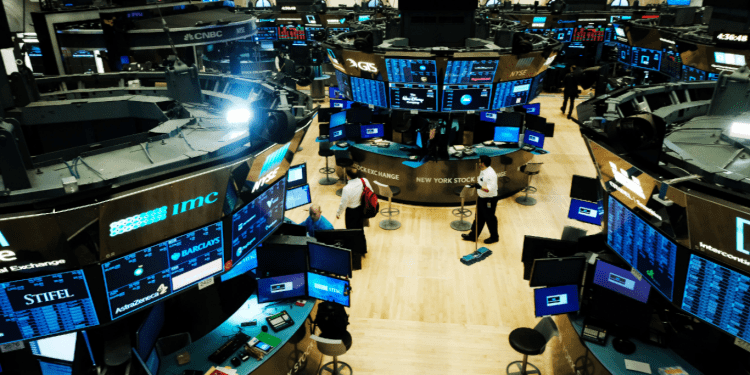Cryptocurrency enthusiasts want to think that Wall Street is simply another enthusiastic investor, prepared to put money in the expanding crypto market and reap the same rewards that ordinary traders have every time the price of the cryptocurrency has surged.
- The future of cryptocurrency’s connection with Wall Street still needs to be clarified, despite the market’s increasing popularity and worth since its inception.
- Many aspiring crypto investors view a Bitcoin or cryptocurrency ETF as a method to firmly establish crypto’s place in the traditional market.
The Real Correlation Between Bitcoin and Wall Street
Everyone would do the same thing once Invesco invested 5% of its $1.4 trillion in managed assets in bitcoin. Due to the surge in demand and the well-known limited supply of bitcoin, the price of bitcoin would soar to incredible heights.
There are two sides to this incredibly particular argument without papering over a lot of detail and entering the philosophical realm where everything exists in a vacuum. Either way: If Wall Street doesn’t buy bitcoin, Wall Street will be in serious trouble, or Bitcoin will be a severe problem if Wall Street doesn’t accept bitcoin. Alternatively, “Wall Street doesn’t need Bitcoin; Bitcoin doesn’t need Wall Street.”
Wall Street doesn’t need Bitcoin
The argument that Wall Street doesn’t require Bitcoin has scant support. Around the 1800s, the previous slave trading market changed into what it is now, and since then, Wall Street has made enormous sums of money, both in the metric and imperial definitions. Before Bitcoin, Wall Street had no difficulties turning a profit, and it continues to do so with no problems.
To put it another way, Wall Street doesn’t just profit from the growth of the assets it manages for investors. Additionally, it generates revenue through selling financial products to, for, and on behalf of investors. Wall Street doesn’t need Bitcoin since it will always find a way to generate profit, regardless of how “late” it is.
Bitcoin doesn’t need Wall Street
Support for the opposing notion—that Bitcoin is independent of Wall Street—is equally scant. The real value of bitcoin stems from its independence from political leaders. This notion also supports freedom from institutions like Wall Street. Bitcoin was developed to get around institutions, not for them. Bitcoin serves as money by eliminating the need for go-betweens.
The trading desks and sell-side investment bankers on Wall Street are the most profitable third-party intermediaries. The motivation behind the creation of bitcoin was to undermine the first, but it would require little creativity to extend that subversion to the second. Wall Street is optional for Bitcoin because there is no need for a middleman.
Conclusion
Wall Street does not require Bitcoin to continue making money. With Wall Street businesses touching bitcoin, advisory and trading fees will generate steady earnings. There will always be organizations that package, issue, buy, and sell financial items that aren’t bitcoins (as long as there is civilization and conflict).
Bitcoin doesn’t require Wall Street since it can survive without intermediaries. Bitcoin will still be an effective way to store wealth for some of the 1.7 billion unbanked adults, the 1.2 billion people living in countries with double-digit inflation, and the 13% of Americans who are underbanked. Bitcoin will continue to offer an escape route for people living under authoritarian rule or double-digit inflation.
Although they don’t require one another, they wouldn’t precisely harm one another. Full adoption of Bitcoin by Wall Street would boost Wall Street’s profits and, most likely, increase the price of bitcoin, which would increase the value of bitcoin for its owners. Although they are not dependent on one another, they might benefit from working together.














